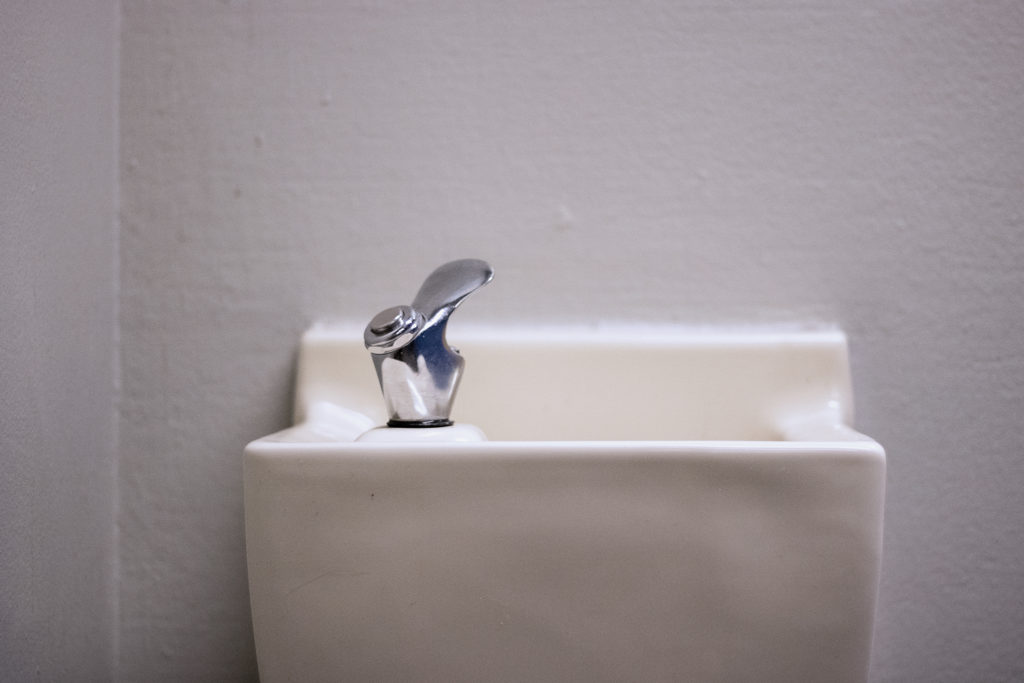A recent study conducted at 199 different pre-schools and schools across the state of Washington found that 60.8 percent of the taps in schools tested had lead levels of one part per billion or greater.
Of these 199 tested schools, 97 percent had at least one tap with lead levels of 1 part per billion or greater in their waters—15 parts per billion is the “action level” where water utilities are required to take action.
Washington Elementary, located in the Auburn school district, measured at 269 parts per billion. Nine Mile Falls Elementary had contamination levels of 200 parts per billion and Isom Elementary measured at 192 parts per billion.
Director for the Center for Environmental Justice and Sustainability and Professor of Civil and Environmental Engineering Phillip Thompson explained that high amounts of lead can lead to significant damage to the nervous system.
Thompson continued to explain that the necessary actions would include a process that measures corrosion control. This could lead to adjustments in pH levels, or the addition of corrosion inhibitors such as orthophosphates. This process helps to form protective layers on the surface of the pipes to prevent lead from entering the water stream.

Drinking fountains like this one from bellarmine residence hall can be found in almost any school around Washington.
Lead contamination in waterways happens due to corrosion of pipes which can contain lead. When this corrosive water makes contact with these lead pipes, this causes the lead to leak into the water. These lead pipes can primarily be found in old homes. Many cities across the United States use lead pipes to distribute their water, such as Seattle and Flint, Michigan.
Thompson explained that the city of Seattle measures lead contamination levels by bringing their data to a certified testing lab, where they are able to see if there are any harmfully high contamination levels.
Seattle U obtains their drinking water from Seattle Public Utilities (SPU), where they are required to have their water checked every six months unless the institution qualifies for an exemption.
“It’s great to know that Seattle Public Utilities is regularly monitoring lead levels so they can adjust their treatment process and continue to protect public health,” Thompson said.
According to the SPU website, they began sampling and analysis of the water to meet the Environmental Protection Agency’s Lead and Copper Rule in 1992. The rule regulates and sets action for lead and for copper levels within drinking water. A utility must make treatment changes or meet other requirements if the action level for either lead or copper is exceeded in more than 10 percent of the residential samples.
Associate Vice President of Facility Services Robert Schwartz explained that Seattle U’s water is routinely tested for high lead levels at SPU.
Since catching wind of other Seattle schools that tested for high lead levels, Schwartz said that water samples from Campion, the Student Center, and Xavier have been sent to the lab through a third party to test for contamination levels.
“If we have an issue, then we want to know about it. I don’t think that we will, I think it’s been since 1985, lead solder, which is a source of a lot of the lead in the water, we haven’t used it on campus,” Schwartz said. “I think it’s going to be more of an issue with lines that aren’t used more frequently. Our lines only get so much usage. I’m not expecting that we’ll have any problems, just one of the things that we don’t routinely check.”
Richard Moyer, manager of facilities operations, assured that Seattle U’s water systems shouldn’t be a problem that the campus community needs to worry about, and said that lead is typically more of a concern with paint, dust, and soil.
“We actually have some of the cleanest water in the nation, and Seattle is constantly highlighted for the cleanliness of its water sources and its transportation and structure. It’s really not a concern here as far as I can tell.”
Schools in the Seattle area will continue to monitor lead levels in the water taps provided to students.
Caylah may be reached at
clunning@su-spectator.com








